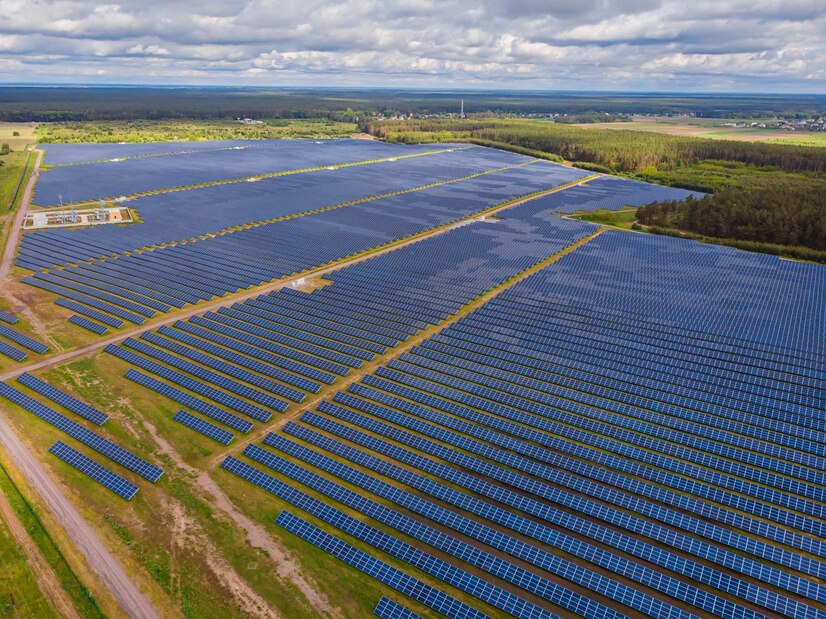
Benefits of Solar Energy Systems in Agriculture
Efficiency and sustainability are of the utmost importance in the ever-evolving field of agriculture. Farmers are looking for creative ways to cut costs and reduce their impact on the environment as the demand for energy around the world rises and environmental issues become more persistent. Solar energy systems are arising as an extraordinary power in this journey, offering a plenty of advantages that reach out past electricity generation. Agriculture businesses can save a lot of money, ensure energy independence, increase productivity, and contribute to a more sustainable future by harnessing the solar energy systems. This article delves into the numerous benefits of incorporating solar energy systems into agriculture and highlights how this renewable resource is improving the farming landscape.
Cost Savings
One of the main advantages of solar energy in agriculture is the decrease in electricity costs. Fossil fuels and grid electricity are heavily used in traditional farming, which can be costly and unpredictable. Solar energy frameworks give a practical other option. After the initial installation is finished, solar panels generate electricity for free, which means that over time, you’ll save a lot of money on your utility bills. The financial relief allows farmers to reinvest in their tasks, further developing overall farm efficiency.
Energy Independence
Farmers benefit from greater energy independence thanks to solar energy systems. Farmers are less dependent on external energy sources and their fluctuating prices with solar panels installed on their property. This independence is especially important in remote areas where there may be limited or no grid access. Farmers are able to continue operating without interruption because solar energy provides a power supply that is both consistent and dependable.
Environmental Benefits
Agriculture fundamentally affects the climate, and integrating solar energy systems can assist with alleviating this effect. Solar energy is a perfect and sustainable power source, diminishing the dependence on fossils fuels and bringing down greenhouse gas emissions. Farmers can significantly reduce their carbon footprint and contribute to global efforts to combat climate change by adopting solar energy. Additionally, solar panels are an environmentally friendly choice due to their long lifespan and low maintenance requirements.
Improved Irrigation Systems
Crop growth and water conservation are both dependent on effective irrigation. Solar-powered irrigation systems provide a long-term solution by pumping water with solar energy. These systems can function without being connected to the grid, ensuring that crops get enough water even in remote areas. Solar based pumps are especially beneficial during dry seasons when water is limited. Farmers can increase crop yields and conserve this valuable resource by optimizing water use.
Enhanced Crop Production
There are a number of ways that solar energy systems can directly affect crop production. By controlling light and temperature, solar-powered greenhouses, for example, create ideal growing conditions. These nurseries can broaden the developing season and shield crops from unfavorable weather conditions. Also, solar energy can drive progressed cultivating advancements, for example, robotized water system, environment control frameworks, and precision agriculture tools. Farm profitability will ultimately rise as a result of these innovations, which improve crop yield and quality.
Sustainable Livestock Farming
Solar energy isn’t just good for growing crops; it’s also important for livestock farming. Solar-powered ventilation systems ensure the animals’ well-being by assisting in the maintenance of ideal conditions in livestock shelters and barns. The health of the livestock as a whole and the risk of disease are both improved by adequate ventilation. Solar energy can also power feeding systems, electric fences, and water heaters, making livestock farming more sustainable and efficient.

Job Creation and Rural Development
Utilizing solar energy in agriculture can stimulate job creation and rural development. Solar system installation and maintaining solar energy systems require skilled labor, which opens up employment opportunities in rural areas. The quality of life for residents could be enhanced by this development, which could have a positive economic impact on the communities that are located nearby. Besides, farmers can generate additional income by selling excess electricity power back to the grid, making another income stream.
Government Incentives and Support
To encourage the use of solar energy in agriculture, numerous governments around the world provide subsidies and incentives. These incentives can significantly reduce the underlying expenses of installing solar panels, making it more reasonable for farmers. In Pakistan, we desperately need to introduce such kind of schemes to encourage agriculture sector to switch to solar energy. There should be a variety of financial aid options, including grants, tax credits, and low-interest loans for farmers. These programs can help farmers switch to solar power, which will make their businesses more sustainable and profitable.
Conclusion
There are numerous advantages to using solar energy systems in agriculture. The agricultural landscape is being reshaped by solar energy, which is transforming everything from cost savings and energy independence to environmental sustainability and increased crop production. As innovation proceeds to progress and costs decline, the adoption of solar energy in farming is expected to grow. By embracing solar energy, farmers can ensure a more sustainable and prosperous future for themselves and future generation. Among the top solar companies in Lahore, DSG Energy is a great choice for switching to solar energy.
Integrating solar energy systems into agricultural practices isn’t simply a trend it’s a smart, ground breaking approach that lines up with global sustainability goals. Today’s solar energy investments by farmers pave the way for a greener, more productive, and resilient agricultural sector.

